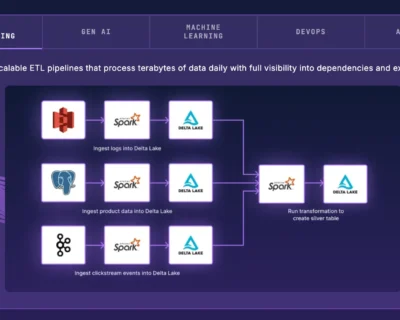Qwen-TTS AI
Qwen-TTS Review: Alibaba’s Text-to-Speech Model Brings Words to Life
Alibaba Cloud’s Qwen team released Qwen-TTS in June 2025, a text-to-speech (TTS) model that transforms written text into natural, expressive speech. With support for Chinese dialects, bilingual capabilities, and a developer-friendly API, Qwen-TTS aims to make your words sound like they’re spoken by a real person. In this review, we’ll explore what makes Qwen-TTS stand out, how it performs, and where it might fall short.
What is Qwen-TTS?
Qwen-TTS is part of Alibaba’s Qwen family, a suite of AI tools designed for creative and practical applications. This TTS model, accessible via the Qwen API, uses advanced AI trained on millions of hours of speech data to produce human-like voices. It supports both English and Mandarin, along with three Chinese dialects—Beijing (Pekingese), Shanghai (Shanghainese), and Sichuan (Sichuanese)—and offers seven bilingual voices: Cherry, Ethan, Chelsie, Serena, Dylan, Jada, and Sunny. Whether you’re creating a voiceover for a video or building a multilingual virtual assistant, Qwen-TTS promises versatility and quality.
Key Features of Qwen-TTS
Here’s why Qwen-TTS is generating buzz:
- Natural and Expressive Speech: Qwen-TTS delivers smooth, human-like speech by automatically adjusting tone, rhythm, and emotion based on the input text. For example, typing “What a sunny day!” results in a cheerful voice that matches the mood.
- Chinese Dialect Support: The model supports Beijing, Shanghai, and Sichuan dialects, adding a local flavor that’s perfect for region-specific projects. This is a rare feature in TTS tools and a big win for cultural authenticity.
- Bilingual Capabilities: It handles both English and Chinese seamlessly, making it ideal for bilingual applications like language learning or global content creation.
- Seven Unique Voices: With voices like Cherry (lively), Dylan (Beijing dialect), and Sunny (Sichuanese), you can pick a style that suits your project’s vibe.
- Developer-Friendly API: Qwen-TTS integrates easily with FastAPI, supporting real-time synthesis, batch processing, and audio downloads in WAV format. Developers can process text files in bulk and track progress in real time.
- Emotional Intelligence: The model adjusts prosody and pacing dynamically, ensuring the speech feels natural and context-aware, whether it’s for storytelling or announcements.
How Does Qwen-TTS Perform?
Qwen-TTS shines in its ability to produce lifelike speech. Trained on a massive dataset, it achieves near-human naturalness, as evidenced by its strong performance on benchmarks like SeedTTS-Eval. The model’s ability to handle dialects is a standout, with voices like Jada (Shanghainese) and Sunny (Sichuanese) delivering authentic accents that resonate with local audiences. For example, a Sichuanese voice narrating a cooking vlog adds a spicy, regional charm that generic TTS models can’t match.
The API is straightforward to use. A simple Python script can generate speech in seconds. Here’s an example of how to use it:
import dashscope
dashscope.api_key = "your-api-key"
response = dashscope.audio.qwen_tts.SpeechSynthesizer.call(
model="qwen-tts-latest",
text="Hey, Curry shoots like it’s a game!",
voice="Dylan"
)
if response.status_code == 200:
print(f"Audio URL: {response.output.audio['url']}")
This ease of integration makes it a favorite for developers building apps or automating content creation.
In practical tests, Qwen-TTS excels in creative tasks like audiobook narration and video voiceovers. Its emotional expressiveness ensures that a story read by Cherry feels engaging, while a Beijing-accented Dylan adds authenticity to a travel vlog. However, it’s not perfect—more on that later.
Applications of Qwen-TTS
Qwen-TTS is versatile and can be used in various scenarios:
- Voice Assistants: Create localized virtual assistants, like a Beijing dialect assistant for a city guide app.
- Audiobooks and Podcasts: Turn novels or articles into audiobooks with voices tailored to different audiences, such as a Sichuanese version for regional listeners.
- Content Creation: Add voiceovers to videos, ads, or social media posts. A lively Sunny voice could make a cooking tutorial pop.
- Education: Generate bilingual audio for language learning or cross-cultural courses, helping students hear accurate pronunciations in multiple dialects.
- Accessibility: Provide audio versions of text for visually impaired users, with customizable voices for a personal touch.
Limitations to Consider
While Qwen-TTS is impressive, it has some drawbacks:
- API-Only Access: Currently, Qwen-TTS is only available via the Qwen API, requiring an internet connection and an Alibaba Cloud account. Offline use isn’t supported, which may limit its use in certain scenarios.
- Limited Language Support: It covers English and Chinese (with dialects), but support for other languages is still in development. If you need Spanish or French, you’ll have to wait for future updates.
- Censorship Concerns: Some users report that Qwen models, including TTS, may censor culturally sensitive topics, particularly those tied to Chinese traditions like Feng Shui or Tibetan culture. This could restrict its use for certain projects.
- Not Fully Open-Source: While some Qwen models are open-source, Qwen-TTS is API-based and not fully open for customization, which might disappoint developers looking for local deployment.
Who Should Use Qwen-TTS?
Qwen-TTS is a fantastic choice for developers, content creators, and businesses working on bilingual or Chinese dialect-focused projects. Its natural voices and dialect support make it ideal for localized content, from voiceovers to educational tools. However, if you need offline capabilities or broader language support, you might want to explore alternatives like Kyutai TTS, which offers open-source options for English and French.
Final Thoughts
Qwen-TTS is a game-changer for text-to-speech applications, especially for those targeting Chinese-speaking audiences. Its natural voices, dialect support, and easy-to-use API make it a powerful tool for creative and practical uses. While it’s limited to API access and a few languages, its performance and expressiveness are hard to beat. If you’re looking to give your words a voice—whether it’s a Beijing accent or a cheerful English tone—Qwen-TTS is worth a try. Check it out via Alibaba’s blog or ModelScope, and start making your text talk
- Pricing Model: FREE








Leave a Comment